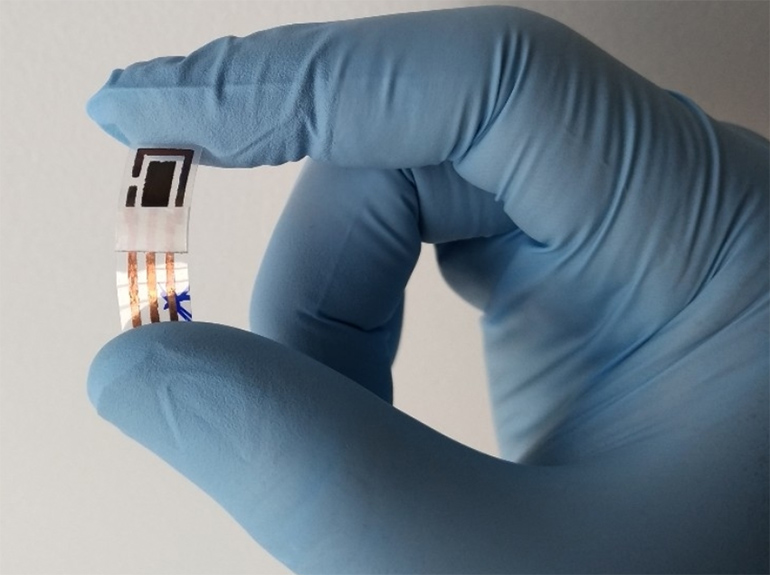Medtech
Flexible Sensors Detect Heavy Metals in Sweat
Researchers at the University of São Paulo in Brazil, along with collaborators in Germany and Sweden, have developed a flexible sensor that can detect…


Researchers at the University of São Paulo in Brazil, along with collaborators in Germany and Sweden, have developed a flexible sensor that can detect heavy metals in sweat, an easily obtainable bodily fluid. Heavy metals, such as lead or cadmium, can cause serious toxicity if they accumulate in the body, but detecting the concentration of such metals in biological samples requires expensive laboratory equipment and skilled staff. To address this, these researchers have created a flexible sensor that is easy to use and which can detect metals in sweat samples before transmitting the results to a smartphone. The technology may assist in diagnosing heavy metal toxicity in areas of the world with limited access to diagnostic equipment.

Heavy metal is no fun, at least in the context of the human body. Exposure to high levels of these metals can cause significant toxicity. For those living in areas of the world without easy access to state-of-the-art equipment, diagnosing heavy metal toxicity is a challenge. However, this latest technology aims to change that with a low-cost, easy-to-use flexible heavy metal sensor that can measure these substances in sweat.
“We get important information on a person’s health by measuring their exposure to heavy metals. High levels of cadmium can lead to fatal problems in the airways, liver and kidneys,” said Augusto Raymundo Pereira, a researcher involved in the study. “Lead poisoning damages the central nervous system and causes irritability, cognitive impairment, fatigue, infertility, high blood pressure in adults and delayed growth and development in children.”
We tend to eliminate heavy metals from our bodies through the sweat and urine, which is convenient for diagnostic purposes as it means that invasive blood draws are not required to detect these metals. This latest technology is a flexible film sensor that can analyze sweat.
“The base of the device is polyethylene terephthalate [PET], on top of which is a conductive flexible copper adhesive tape, a label of the kind you can buy from a stationer’s, with the sensor printed on it, and a protective layer of nail varnish or spray,” said Robson da Silva, another researcher involved in the study. “The exposed copper is removed by immersion in ferric chloride solution for 20 minutes, followed by washing in distilled water to promote the necessary corrosion. All this ensures speed, scalability, low power and low cost,”
Study in journal Chemosensors: Design and Fabrication of Flexible Copper Sensor Decorated with Bismuth Micro/Nanodentrites to Detect Lead and Cadmium in Noninvasive Samples of Sweat

ETF Talk: AI is ‘Big Generator’
Second nature comes alive Even if you close your eyes We exist through this strange device — Yes, “Big Generator” Artificial intelligence (AI) has…
Apple gets an appeals court win for its Apple Watch
Apple has at least a couple more weeks before it has to worry about another sales ban.
Federal court blocks ban on Apple Watches after Apple appeal
A federal appeals court has temporarily blocked a sweeping import ban on Apple’s latest smartwatches while the patent dispute winds its way through…














